The military serves the Constitution and the interests of the American people, not the political and personal interests of the individual in the White House. Deploying them in American streets undermines democracy, argues Robert Kagan. This article originally appeared in the Washington Post.
Anyone concerned about the state of America’s democracy ought to have been troubled Monday at the sight of the chairman of the Joint Chiefs of Staff, Gen. Mark A. Milley, striding behind Donald Trump during his presidential show of force at Lafayette Square. Dressed in combat fatigues and walking with Attorney General William P. Barr, national security adviser Robert O’Brien and others, the nation’s highest-ranking military officer did more than make himself part of the tableau of Trump’s photo op and campaign commercial.
Milley gave tangible meaning to the president’s threat to deploy the U.S. military to put down “domestic terror” in the United States. His presence also raised questions about the military’s role as the country heads toward November and what the president has already declared could be “the greatest Rigged Election in history.”
The president’s call for military deployments against protesters was not some random Trumpian effusion. He and his advisers and supporters are building a legal justification for deploying troops on American streets. Defense Secretary Mark T. Esper advised the nation’s governors to “dominate the battlespace,” by which he meant American cities. Prominent Republican Sen. Tom Cotton (Ark.), a close Trump ally and presidential aspirant, called for deploying “the 10th Mountain, 82nd Airborne, 1st Cav, 3rd Infantry — whatever it takes,” against the “insurrectionists,” a deliberate reference to the Insurrection Act of 1807, which gives the president broad powers to deploy federal troops. Trump tweeted that Cotton’s suggestions were “100% Correct.” (Esper and Vice President Pence reportedly advised the president on Monday to invoke the Insurrection Act, though Esper has since said that he does not favor invoking it.) This is the context in which Milley appeared with the president in his battle fatigues. It is the context in which a U.S. Army helicopter descended to rooftop level in Washington’s Chinatown hours later, frightening and scattering protesters in a “show of force” that snapped trees and nearly injured the fleeing civilians.
Dictators rule by controlling the “power ministries”: the domestic police and intelligence services, foreign intelligence services, and armed forces. U.S. democracy has been sustained by a strong tradition of ensuring that the power ministries serve the Constitution and the broader interests of the American people, not the political and personal interests of the individual in the White House.
This has been a tradition, however, not an ironclad guarantee. The Founders gave the executive immense powers to ensure that the young nation could survive in a dangerous world. They knew these powers carried immense dangers; that was one reason they added the impeachment clause to allow the removal of a president not only for violating the laws but also for legally abusing the great powers of the office. Mostly they counted on other factors to check the president: the mutual jealousy of the branches, especially Congress; the vigilance of the people (“a republic if you can keep it”); and the devotion of elected officials, including the president and Cabinet officers, to the spirit of democracy.
Nothing about the system prevents presidents from skirting or ignoring these traditions. Presidents have done so for “good” reasons and bad. In the modern era, Presidents Dwight D. Eisenhower and John F. Kennedy invoked the Insurrection Act to enforce civil rights laws; in 1932, President Herbert Hoover sent Gen. Douglas MacArthur with 1,000 infantry and cavalry, and six light tanks, to disperse thousands of protesting World War I veterans and their families — the “Bonus Army” — from their makeshift camps on the Anacostia Flats. These and other such instances provide ample precedent for a president to deploy the armed forces in domestic situations. The only thing preventing their use to undermine democracy is the refusal of the Cabinet, Congress, the courts and the military to let a president abuse his power in this way.
Already we have seen that the first three institutions cannot be relied upon. Two of the three power ministries are being subordinated to the president’s personal and political interests. Under Barr, the Justice Department ignores traditional rules aimed at shielding prosecutors from political manipulation. So far these departures from the norm have been used to aid the president’s friends, though nothing prevents them from being used to persecute the president’s enemies. Meanwhile, the FBI is under attack for disloyalty to the president and may undergo a purge of those deemed unwilling to support the president’s personal and political agenda. The CIA faces similar pressures. All of this is occurring without obstruction from Congress and is actually aided by the Republican majority in the Senate. Whether the courts will or can contain the president remains to be seen. It is doubtful that the highly politicized Supreme Court would intervene in the president’s management of the executive branch, and the court is traditionally reluctant to intervene when a president says national security is at stake, whether or not the claim is legitimate.
That leaves the military, the third power ministry. Let’s stipulate that the military remains as wedded as ever to the tradition of political abstention, that military leaders have no desire to involve themselves in whatever schemes Trump might have for winning reelection or any action he might try to take should he lose. But what is the military leadership to do when a duly elected president gives it a plausibly legal order to deploy in the United States? And what if that order comes after a contested election that the president has declared “rigged,” due to alleged foreign meddling or some alleged domestic fraud? When protesters gather in the streets, and the “law and order” president orders the military to move against that “insurrection” and “domestic terror,” will the fate of our democratic experiment depend on the military refusing to obey?
Whether this is a plausible scenario depends on one’s assessment of Trump, his Cabinet, the Republican Senate and the Supreme Court. If you believe that Trump would never do such a thing, or that the others would never let him, then you can go back to sleep. Maybe the image of Milley in battle fatigues outside the White House was just a passing moment, or maybe it will turn out to be the first in a series of pictures in some future history text about the undermining of American democracy. But if you’re not sure which, perhaps it’s not too early to start sounding the alarm.
The Brookings Institution is committed to quality, independence, and impact.
We are supported by a diverse array of funders. In line with our values and policies, each Brookings publication represents the sole views of its author(s).
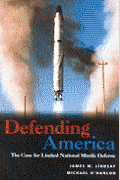
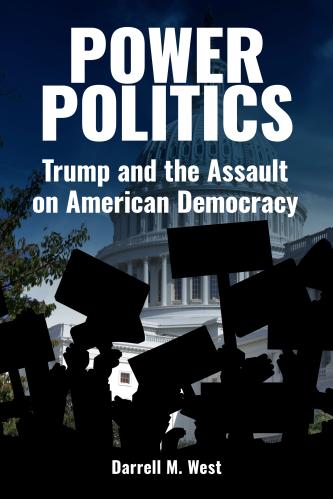
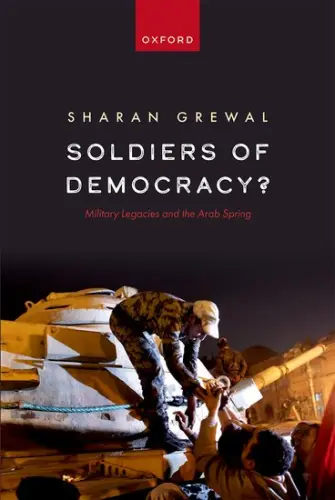
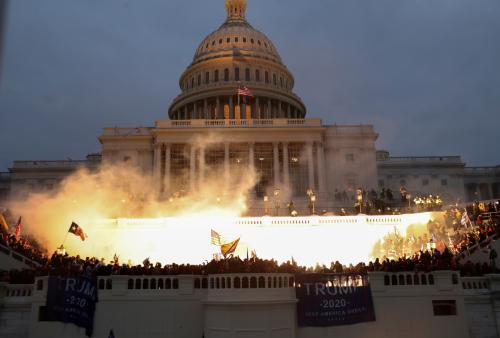
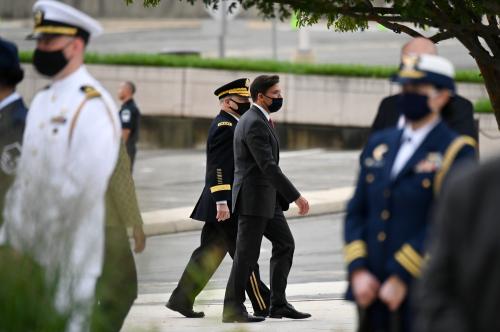
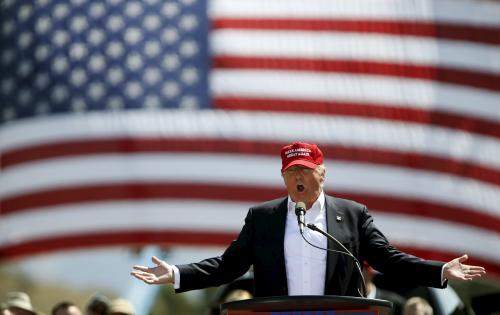
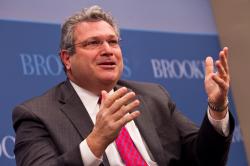

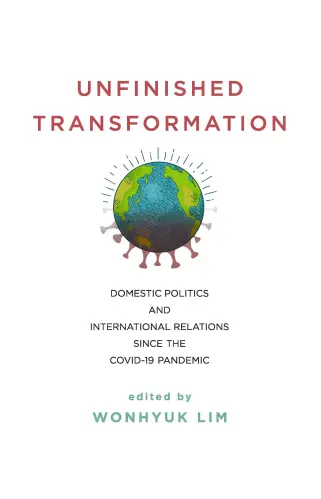
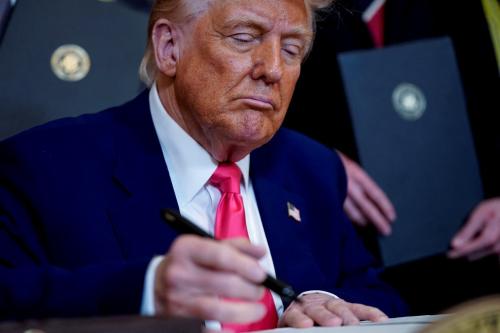
Commentary
The battle of Lafayette Square and the undermining of American democracy
June 6, 2020